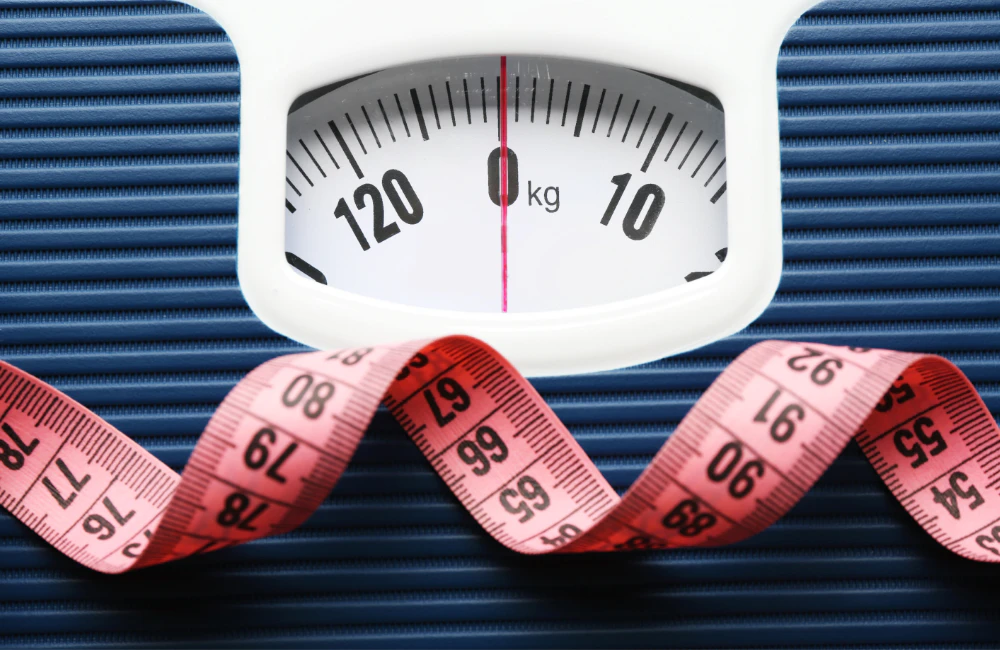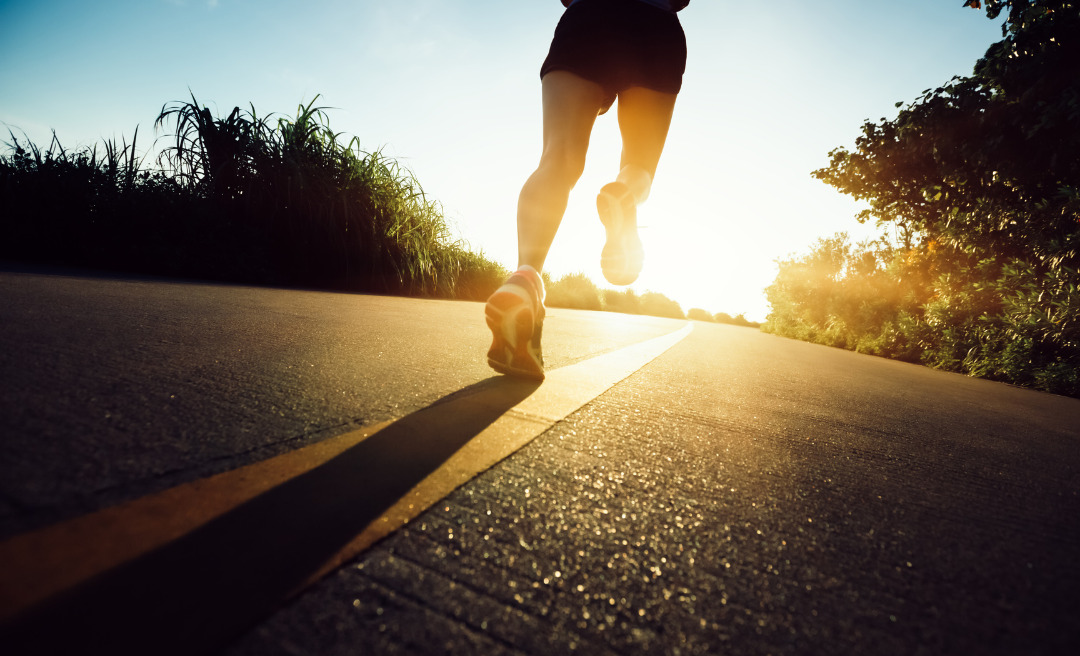
For an entire decade, between losing the last of the “baby weight” and starting to experience hormone fluctuations, I was golden. That number on the scale stayed pretty consistent, month after month, year after year. Yes, there were bumps after a sodium-laden meal, right before my period, or post-vacation. But as long as I continued to exercise and eat right, I lingered around my fighting weight.
Then perimenopause hit.
During those tumultuous years before the onset of menopause (which you aren’t officially in until your period hasn’t come for 12 months straight), your body rarely feels quite right. The bloating comes and goes, and not in any regular pattern like you might have been used to. You may skip periods, or have more of them. You sometimes experience PMS-like symptoms—mood swings, fatigue, painful breasts and acne—during or after your period, not just before. And you may start to gain weight, especially around your torso. Unfortunately, this stretch can last up to 10 years, so when you’re in it, perimenopause can feel endless.
When this started with me, it caught me off guard. I was eating well like I always had, and still exercising daily, but suddenly my weight was harder to control. I moved up a size in jeans, and my bras felt tight. After a couple of months of getting my period every other week, my doctor sent me for a sonogram to rule out anything more ominous.* In the end, she said, it was just those damn hormones wreaking havoc on my previously low-maintenance body.
For more on working out during perimenopause and beyond, read “The Best Way to Work Out in Midlife”
I started researching to see what I could do to feel like myself again. Not only to combat the weight gain, but to help me sleep better and think more clearly (because interrupted sleep and brain fog are two other lovely symptoms of perimenopause). Eventually, I found what worked for me: Limiting sugar, wine and caffeine; cutting dairy (except for Greek yogurt and eggs) and reducing carbs; adding even more vegetables, antioxidants and fermented foods to my diet; and (perhaps most important) going to bed earlier. I also engage in safe intermittent fasting on most weekdays, which means not eating after 8 p.m. and waiting until late morning to have my first meal of the day. All of this has drastically reduced my symptoms, brought my weight back down, and returned my joie de vivre.
Listen to “How to Lose Weight in Midlife, a conversation with nutritionist Julie Court
Yes, there are times, especially during the holidays, when I indulge in dessert or that extra glass of wine. But I always return to my energy-boosting, mood-elevating, symptom-alleviating way of eating. Why wouldn’t I, when it makes me feel so good?
As I discuss with charming menopause and nutrition coach Julie Court on this week’s episode of the More Beautiful Podcast, eating in a way that enables you to be the best version of yourself isn’t self-punishment, it’s self-care. Of course, every woman’s body and lifestyle are different, so it’s important to make dietary tweaks that work best for you. But there are certain strategies that are proven to help most women, and we talk about them during our chat (scroll to the bottom of this newsletter for the link).
Listen to “Get In Your Best Shape At Any Age” with trainer Judy Arazoza
Let’s face it. Our bodies are evolving, just as they did when we were going through puberty and suddenly realized we couldn’t eat candy all day long and not get acne. It’s a metamorphosis from which we will hopefully emerge calmer, happier versions of ourselves. We are dynamic, beautiful creatures who, by the sheer nature of being alive, get to experience this transition in real time. How cool is that? And don’t we deserve the utmost in self-compassion and self-love?
I know that my body is readjusting, recalibrating. That I must be kind to it by filling it with nourishment and nutrients, not junk. That I need to keep moving, whether it’s running, dancing, doing Pilates, or hiking with a friend. That it’s totally possible to have a healthy, fit, toned body at any age. That I need a body that can keep up with everything I still plan to accomplish in this lifetime. These days, staying in shape may require a slightly different strategy and yes, a little more effort, but to me it’s 100 percent worth it.
So it’s OK if, on some days, I notice a little more padding on my belly, or some flab on my arms, or a cramp in my leg after running. This torso has borne two babies, these arms have cradled and swaddled them, and these legs have taken me further than I ever thought I’d get in this lifetime. They’ve earned the right to be imperfectly perfect. And so have you.
*Always check with your doctor if you are experiencing unusual symptoms—just in case.



